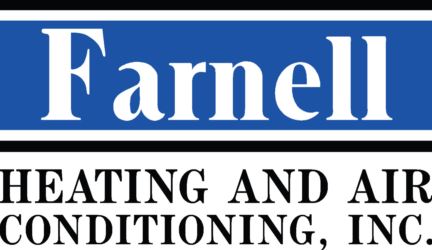
If you’re uncertain whether your Mobile house has poor indoor air quality (IAQ), it probably does.
We are indoors a lot. In fact, we’re in a building up to 90% of the time, according to the U.S. Environmental Protection Agency. And the air inside houses could be 2–5 times worse than outdoors, which might create long-term health concerns.
Most Common Sources of Poor IAQ
We’ve made a list of the most common sources of bad IAQ, the issues they cause and how you can fix these indoor air pollutants. If you’re troubled by the air inside your house, we recommend chatting with a specialist like Farnell Heating & Air Conditioning Inc about which solutions are a good fit for your house.
Volatile Organic Compounds
Volatile organic compounds, or VOCs, are fumes released by common household things.
They’re found in paint and stains in addition to:
- Furniture
- Carpet
- Building materials
- Cleaning products
- Cosmetics
- Air fresheners
- Candles
When these chemicals accumulate indoors, they might irritate your eyes, nose and throat. They can also create headaches and nausea. Regardless of whether your house is in a rural or industrial location, an EPA study found indoor levels of these chemicals can be 2–5 times worse than the air outdoors.
Always use the manufacturer’s directions when applying paint or spraying cleaning products. Cracking a window can help chemicals disperse faster.
Air purification systems can also help. This unit partners with your heating and cooling equipment to clean indoor air. When hunting for a system, ensure it’s specifically designed to eliminate VOCs.
Dust and Pet Dander
Dust and pet dander can aggravate health problems like asthma and allergies, especially when it constantly gets recirculated by your residence’s comfort equipment. While you can vacuum more frequently and install an improved air filter, an air filtration system could be a better fit.
This unit hooks to your heating and cooling equipment to give mighty filtration. Some kinds offer hospital-level filtration for eliminating particles and bioaerosols.
Lingering Odors
New homes are securely sealed to increase energy efficiency. While this is good for your heating and cooling costs, it’s not so good for your IAQ.
Musty odors can stick around for a greater amount of time because your residence is pulling in a smaller amount of fresh air. Because keeping your windows open throughout the year isn’t an option, here are two ways you can make your indoor air smell fresher.
An air purification system is placed in your ductwork to wipe out odors before they are redistributed. Find one with a carbon filter and the ability to eliminate dangerous VOCs. These units can also help keep your family healthy by wiping out most bacteria and ordinary allergy triggers like pollen and mold spores.
A ventilation system removes musty indoor air and exchanges it with clean outdoor air. There are two models of equipment (heat recovery and energy recovery), so ask our professionals for more info on which type is right for your residence.
Unsteady Humidity
It’s essential your home’s humidity stays even. Air that’s too humid can create mold, while dry air can lead to respiratory concerns.
Our pros suggest 40–50% for ideal comfort. To keep yours steady, think about getting a whole-home humidifier or whole-home dehumidifier with your heating and cooling equipment.
In place of having to drag a humidifier from room to room, this solution delivers balanced humidity across your house.
Carbon Monoxide
Carbon monoxide is colorless gas you can’t smell. It’s a byproduct of insufficient combustion in fuel-burning equipment, like gas heating systems, water heaters or fireplaces.
It presents a serious health risk. In low levels, it can lead to flu-like symptoms like headaches and nausea. It can be lethal in big amounts.
We advise regular furnace maintenance to make sure your unit is operating smoothly. This service allows our techs to discover issues before they start, including malfunctions that can cause carbon monoxide leaks.
The best way to keep your house free of carbon monoxide is to install detectors. These alarms need to be on each floor by bedrooms and living spaces.
Better Your Residence’s Air Quality with the Farnell Heating & Air Conditioning Inc Pros
Know that your home has bad air quality but not sure how to enhance it? Or unsure which product is ideal for you? Give our approachable HVAC experts a call at 251-471-2674 or contact us online right away. With free estimates and professional service, we’ll help you find the best solution for your needs and budget.
